Sport
Boks must clear huge hurdles to play in Rugby Championship
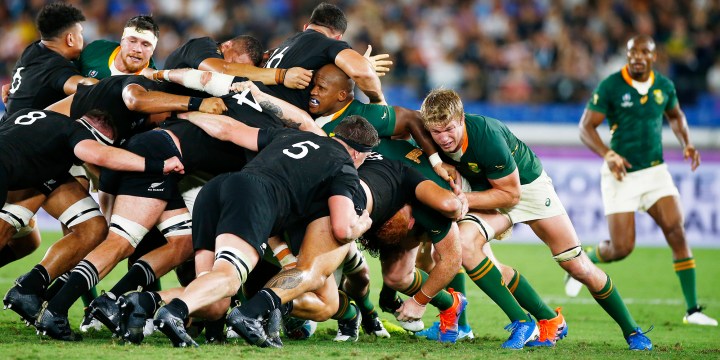
Springbok director of rugby, Rassie Erasmus, made all the right noises about the world champions wanting to play in the 2020 Rugby Championship, but simultaneously made a strong case for why it’s a bad idea.
Publicly, Rassie Erasmus and Springbok coach Jacques Nienaber have no choice but to say how much they want the 2019 Rugby Championship and World Cup winners to play again this year. But their extensive list of reasons why it would be a bad idea, which they outlined in detail, left the impression that privately their outlook might be different.
It’s hard enough to play against the All Blacks, Wallabies and Pumas at full strength and fully prepared. Playing against those teams, but particularly the All Blacks, with little or no preparation, is a recipe for humiliation. That’s exactly the scenario the world champions face after six months of lockdown due to the Covid-19 pandemic.
Erasmus and Nienaber, who took the Boks from a ragtag shambles in 2017 to world champions in 20 months, understand how easy it is to throw that legacy and hard work away. As rugby coaches they desperately want to put a team on the field, but both men are steeped enough in the science of professional rugby to know that good intentions and wishful thinking have no place at the cutting edge of the sport.
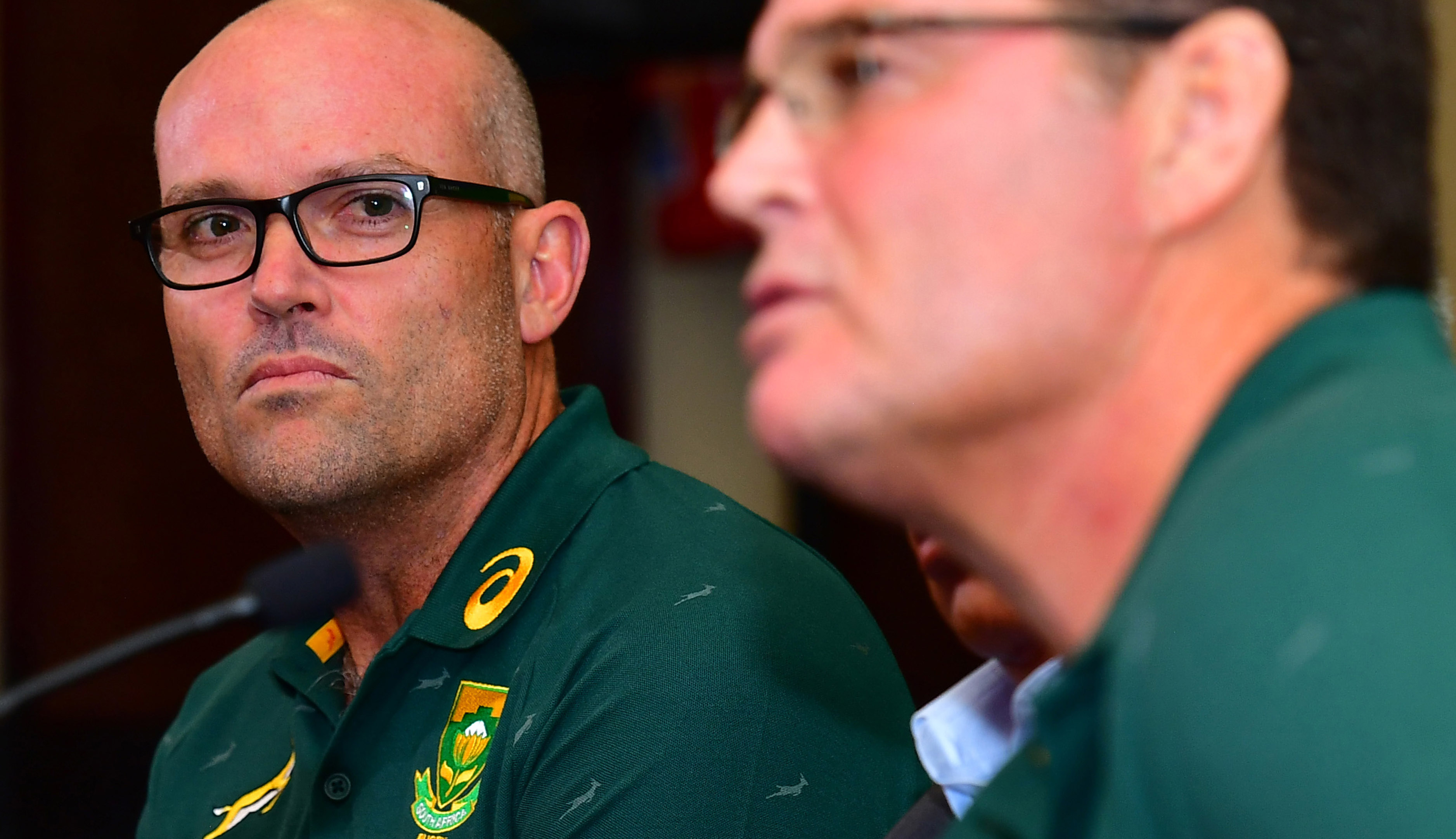
Head coach Jacques Nienaber with Rassie Erasmus, during the Springbok press conference at Southern Sun Pretoria on January 24, 2020 in Pretoria, South Africa. (Photo by Johan Rynners/Gallo Images/Getty Images)
There are no shortcuts at Test level, as their own data shows. They cannot cut corners to prepare – players simply have to play enough minutes to reach the level needed for the intensity the All Blacks and Wallabies will bring. Both those teams have played for months since lockdown. Erasmus said that his data shows that players need a minimum of 500 minutes of game time to reach the base limit to play Tests. Ideally, the Bok management would like players to have 1,000 minutes.
Although South Africa’s leading players had seven rounds of Super Rugby in February and March, the six months’ layoff means those accumulated minutes have been reset to zero.
The simple truth is that there isn’t enough time for the players to reach their physiological targets. If the Boks do travel to Australia to play in the tournament, they will be going on a wing and a prayer. Even though the Bok coaches might say prayers, they prefer science over faith to prepare the team.

Tendai Mtawarira is attented to by physio Rene Naylor at Aviva Stadium in November 2010 in Dublin. (Photo: Duif du Toit / Gallo Images)
The players’ mental welfare is also a massive consideration because the tour to Australia will mean eight weeks away, the first two of which will be in a hard lockdown quarantine environment. That would be on top of South Africa’s restrictive lockdown over the past six months, which has already exacted heavy mental and physical toll on players.
“Because South Africa was in a really hard lockdown, we have to get five to six games into the players before it is safe for them from an injury perspective,” Erasmus said at an online media briefing.
“These players will be away from home for so long, and living in a bubble. They played last week in Pretoria, this week in Cape Town and then next week they will play at home, but then will be away for eight weeks – so they will be away from home for nine weeks. And then when they return from Australia, they will have to quarantine again.
“The players who have close to 400 or 500 minutes – which we need to be competitive and safe – are those that are based overseas. But even the player with the most minutes will have a little over 400 when we leave. Internally we are working out how we get the boys to the right level.”
One option is for a large Bok squad to play competitive matches against each other while in quarantine to up their minutes, but Erasmus was a little sceptical of that idea.
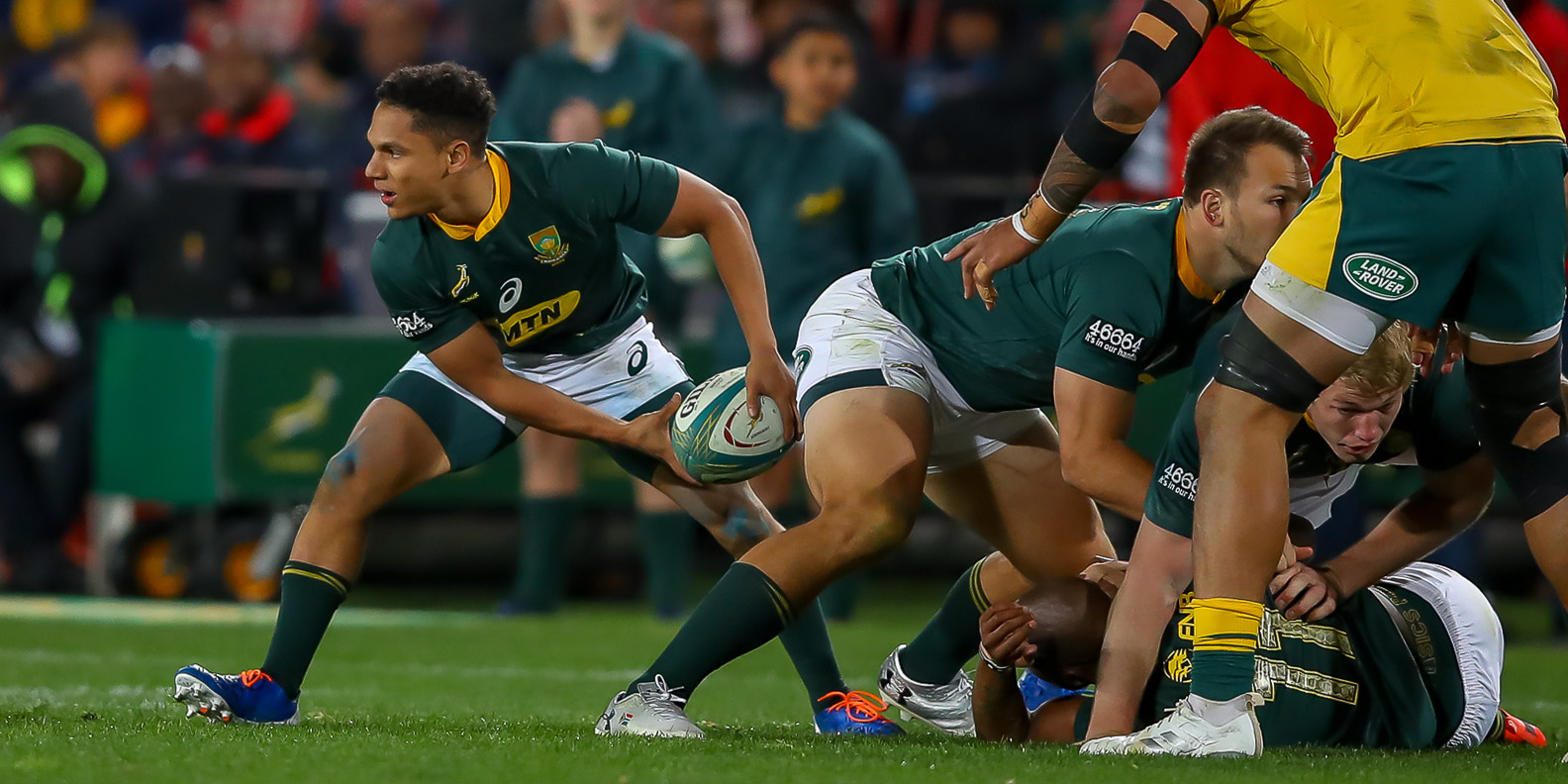
: Herschel Jantjies of South Africa about to pass the ball during the The Rugby Championship match between South Africa and Australia at Emirates Airline Park on July 20, 2019 in Johannesburg, South Africa. (Photo by Gordon Arons/Gallo Images)
“We are trying to find solutions for what we can do. If we are lucky to get players who have over 200 minutes, you probably can play against each other because you will have a squad of 46,” Erasmus said.
“But if you take two teams of 23 and play against each other in two matches, you will get 160 more minutes, which bumps it up to a total of roughly 360 minutes, which is almost there.
“But there won’t be a referee… the intensity might be higher because players are competing for spots. When you play a ‘normal’ match, there might be a risk of some of the 15 players on the field getting injured. The risk is doubled when playing against each other because 30 of your players are on the field.
“That’s not only because there are more of them on the field, but because more of them were under a strict lockdown here and have fewer than 200 minutes playing time in the bank. It is one of the solutions we are looking at, but there are a lot of problems with it, which we are trying to work around.”
Travel restrictions and player availability
Another factor, which is out of the Springboks’ control, is the continued ban on national sports teams participating under regulations laid out in the National Disaster Management Act. Clause 3 (iv) is clear: “Not allowing participation in an international sports event held outside the borders of the Republic.”
The government has still not released the amendments to the act since the country moved to Level 1 lockdown. The new regulations might change that clause, allowing for the Springboks to travel, but for now the status quo remains. They have until 10 October to make a call on participation in the Rugby Championship.
“There are a few things that we have to consider,” Nienaber said. “The first thing is that international sporting participation has no green light from the government currently.
“The other factors would be around the isolation period that we have to go into when we get to Australia. We have been on calls weekly. The isolation period is not going to be as strict as in New Zealand, but the details around it, like what recovery facilities and what modalities we can use, haven’t been spelled out yet. We are waiting for Australia’s government to give us guidelines in terms of what we can do when we actually get there.
“The last thing is about the availability of our overseas-based players. Currently, World Rugby’s regulation 9 allows us to call up players in the window. But there has been a big pushback from the English clubs. That would be problematic for us as we would get those players a bit later. That has a massive influence on the isolation period.”
Erasmus fleshed out further details around the English player problem as their club play-offs take place between 10-24 October.
“The English clubs will be in their semi-finals and final and we haven’t got a clear answer over when their players will be available,” Erasmus said. “The French clubs are aligned with us.
“You have to arrive in Australia at the same time and it will be a massive squad because you have to be there for eight weeks. Quarantine alone is two weeks. You would have to take four looseheads, tightheads and hookers. If you have an injury in any of those key positions, the player who comes in [as a replacement] has to go into quarantine for two weeks. So, you simply have to take a massive squad.
“That makes it problematic – not that we can’t overcome it – if the overseas-based players only arrive two weeks after us because of the Premiership final. Then when we start playing Argentina in the first two weeks, they will still be in quarantine and will be without high-performance support such as doctors or physios. They will physically stay on their own.”
Whichever way you spin this, it looks an increasingly bad idea for the Springboks to travel to the Rugby Championship. The only upside is the R300-million in broadcast fees SA Rugby is set to earn if the Boks play.
But set against the potential risk to players’ health and the potential reputational damage the Boks could face, especially before the 2021 British & Irish Lions tour to SA takes place, sitting this one out makes more sense. DM

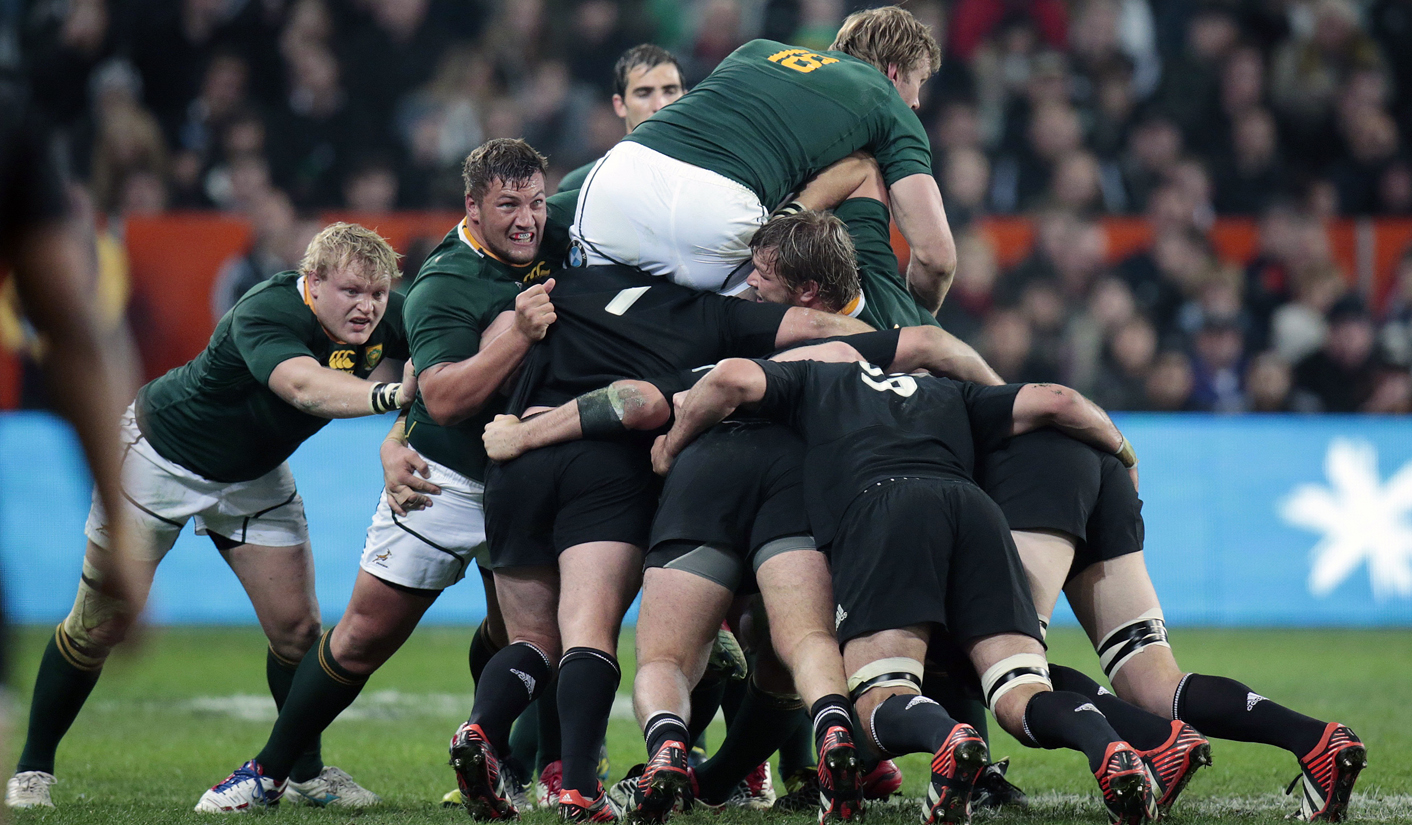







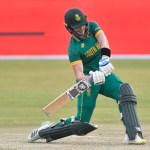









 Become an Insider
Become an Insider
Comments - Please login in order to comment.